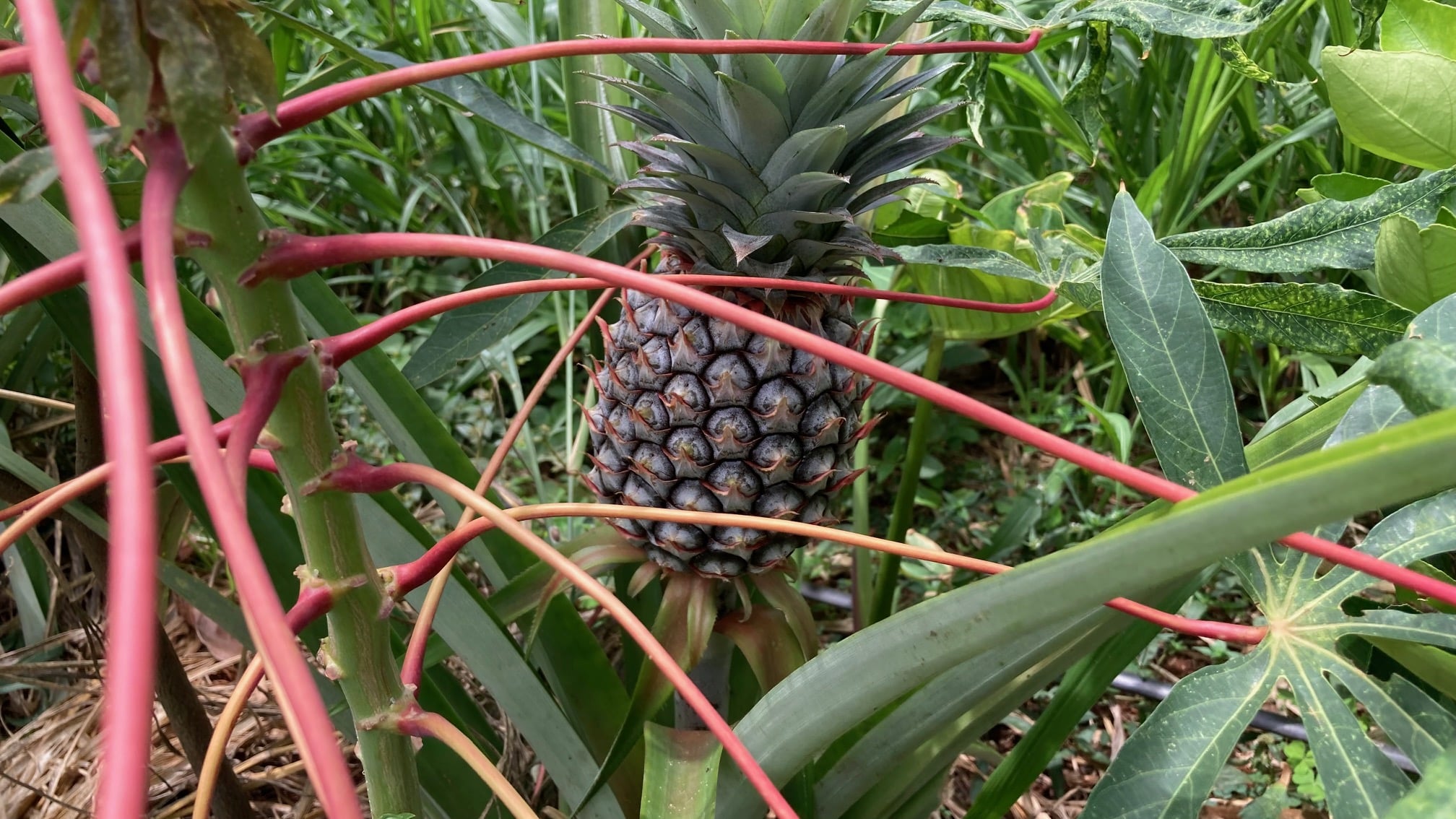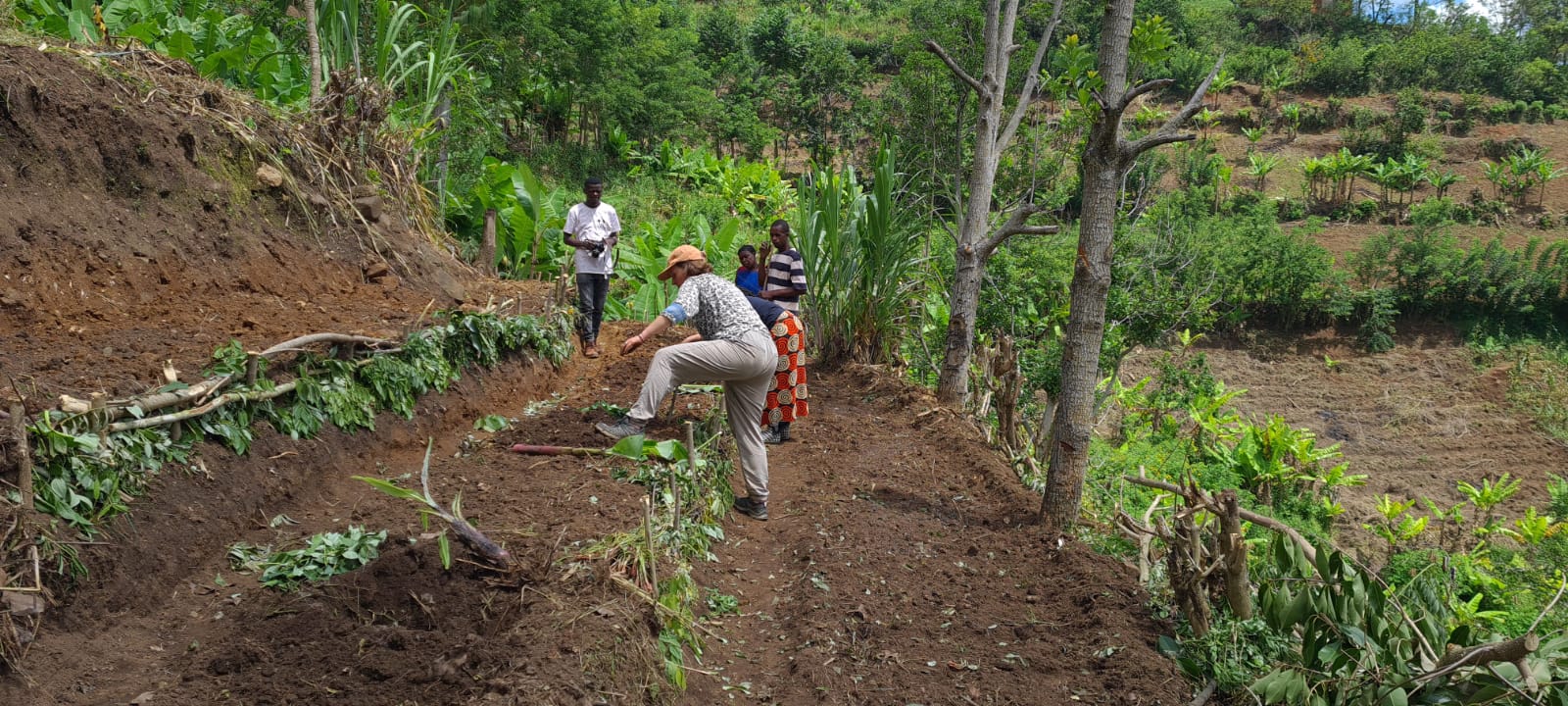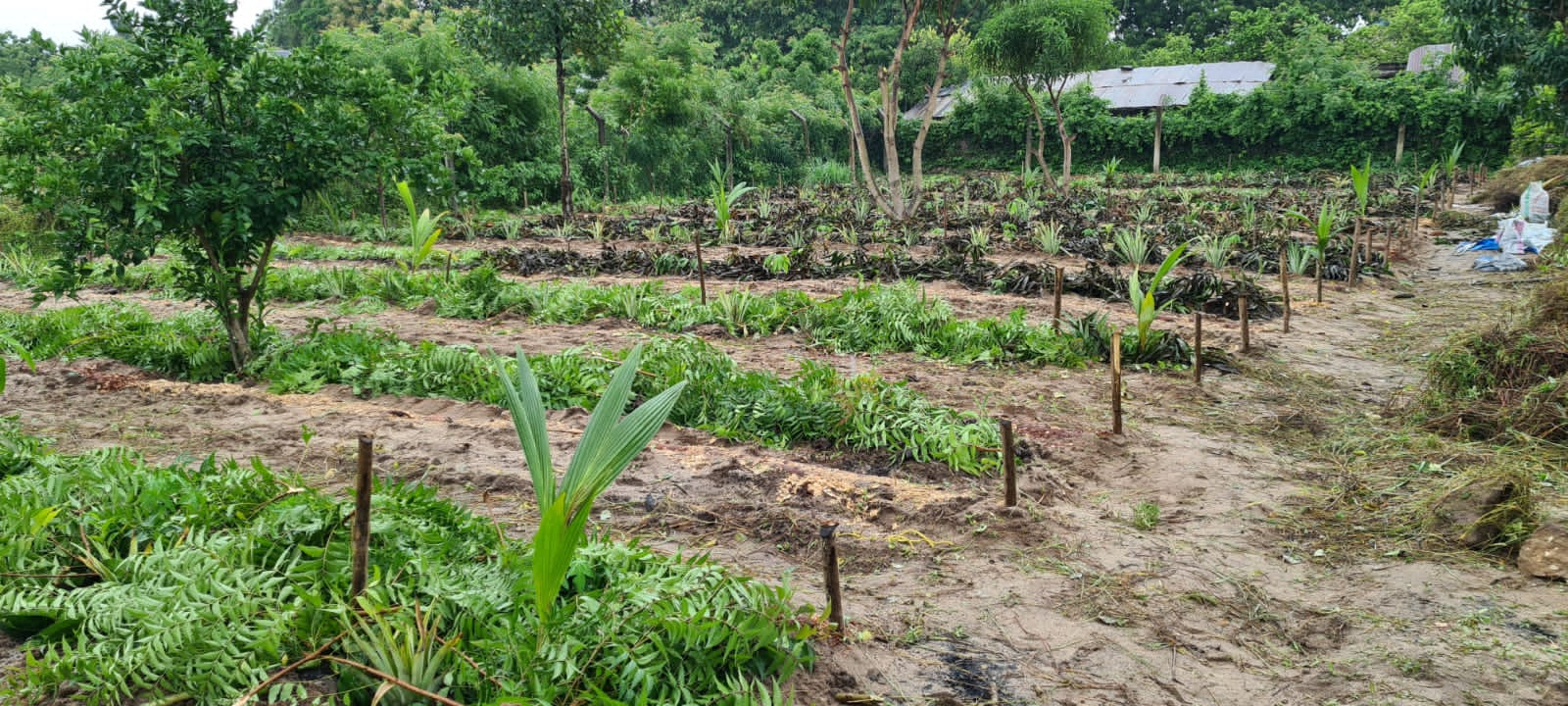Invest in Our Planet
Gearing up to Earth Day on April 22nd, and taking advantage of the Tanzanian long rains that usually begin in March and end in May; APOPO teams established six new food forests in the last few weeks, as part of the HeroTREEs project.
These food forests are designed using Syntropic principles, inspired by the complexity of the networks in nature. While modern intensive farming is a leading cause of climate change, soil degradation, and loss of biodiversity; Syntropic farming provides an alternative method, giving back to the earth while producing abundant crops.

Food forests cool the soil and atmosphere that maximizes photosynthesis through stratification by densely intercropping according to the sunlight requirements of each plant in the various layers. Food forests also improve soil and plant quality through intensive mulching and stimulation of soil fungi, which in turn reduces the need for water and increases the biodiversity of indigenous plants that provide a habitat for local fauna. Syntropic farming does not apply chemicals of any kind but rather focuses on plant health to prevent disease.

Out of the six food forests, two were established in the Uluguru Mountains in collaboration with the HeroTREE farmers and Sustainable Agriculture Tanzania, to provide a viable alternative to current agricultural practices that are depleting the watershed of Morogoro, Tanzania. This project also provided new crops for the area such as apples and plums that grow most successfully in high-altitude climates. In addition, we also established two farms at our central facility for the HeroRAT trainers. A fifth farm, a larger scale orchard, was established in an area of dry emerging bush, preserving the bushland to support the growth of the fruit trees that will provide food for the HeroRATs. The sixth farm was established for APOPO’s tuberculosis detection rat trainers at its premises in Dar es Salaam, Tanzania an area characterized by a hot and humid climate with sandy soils.

In total, we planted more than 1,000 woody fruit and spice trees of more than 30 species, in addition to timber trees, more than 500 papaya trees and pineapples, cassava, ginger, turmeric, arrowroot and lots of vegetables over a combined area of 5,200 square meters!
We believe that this ancient method, though innovative in modern times, can help communities affected by landmines and TB, by providing a healthy source of income, increasing food security, and preserving our earth. It is vital that we all recognize our collective responsibility and help accelerate action by bringing everyone together to understand that this is within our reach if we work together.
APOPO would like to thank Syntropic Farming expert Roland van Reenen for his specialist advice and oversight, and all of our hard-working APOPO and HeroTREEs teams for putting the plans into action!



